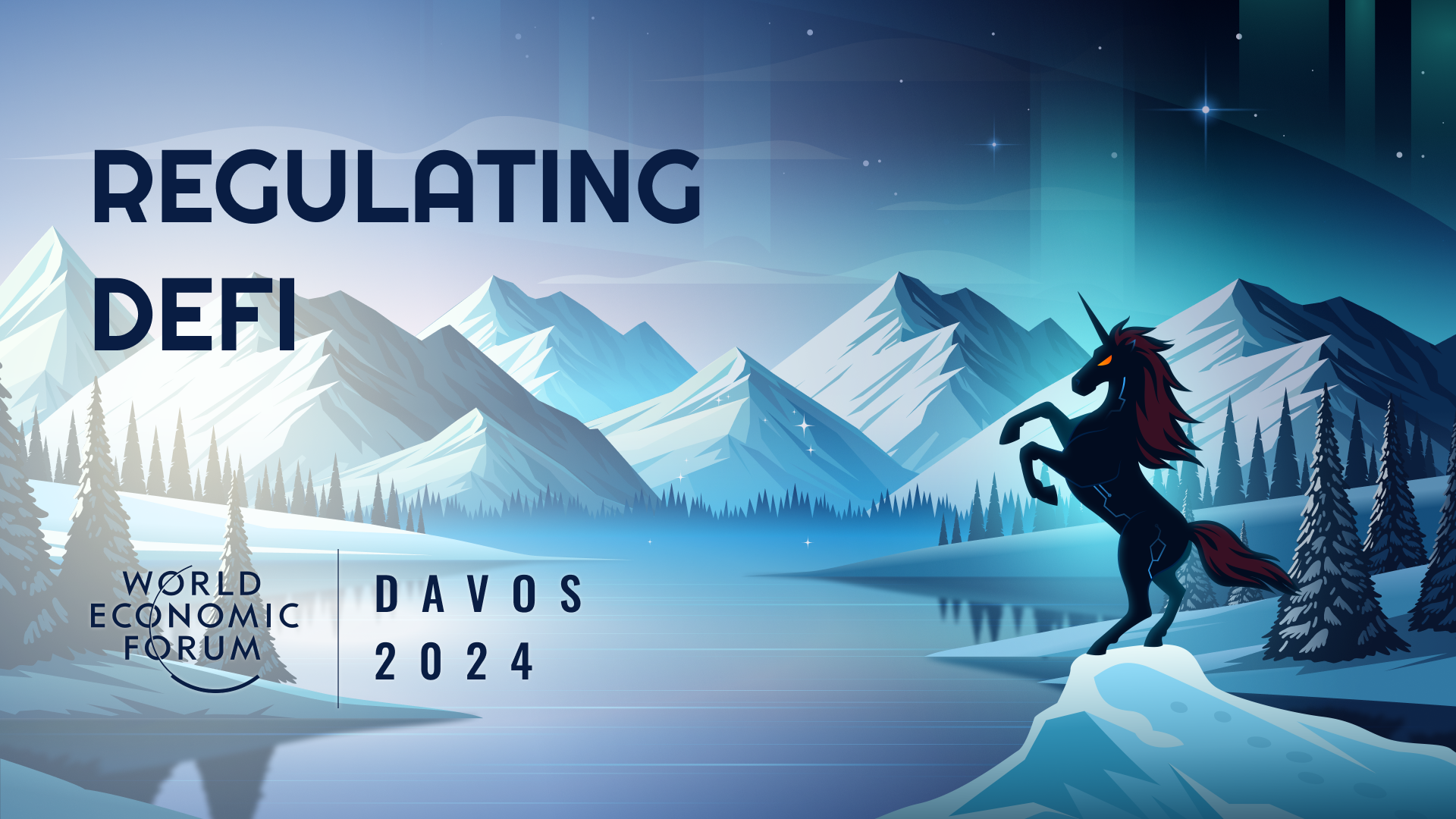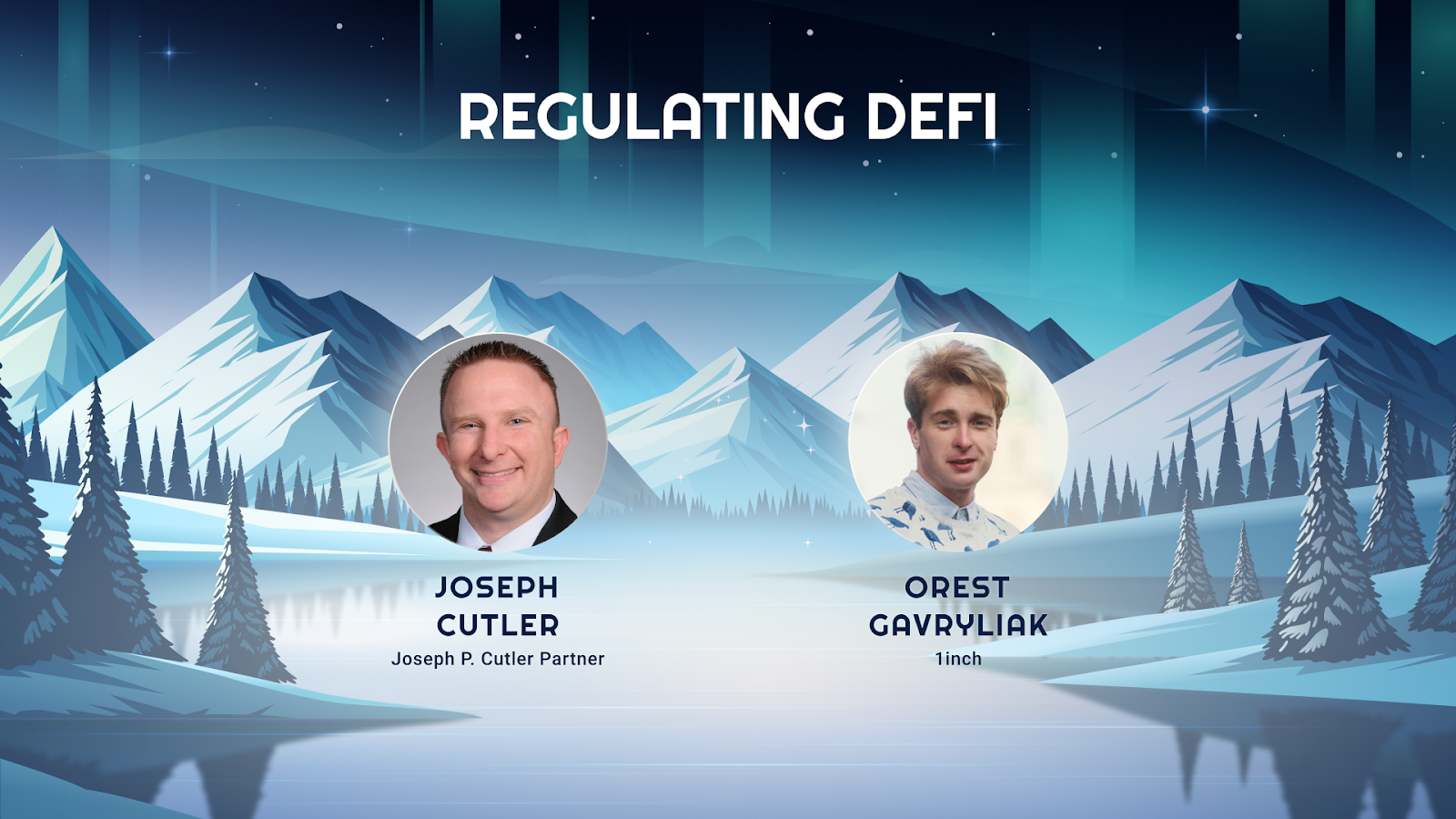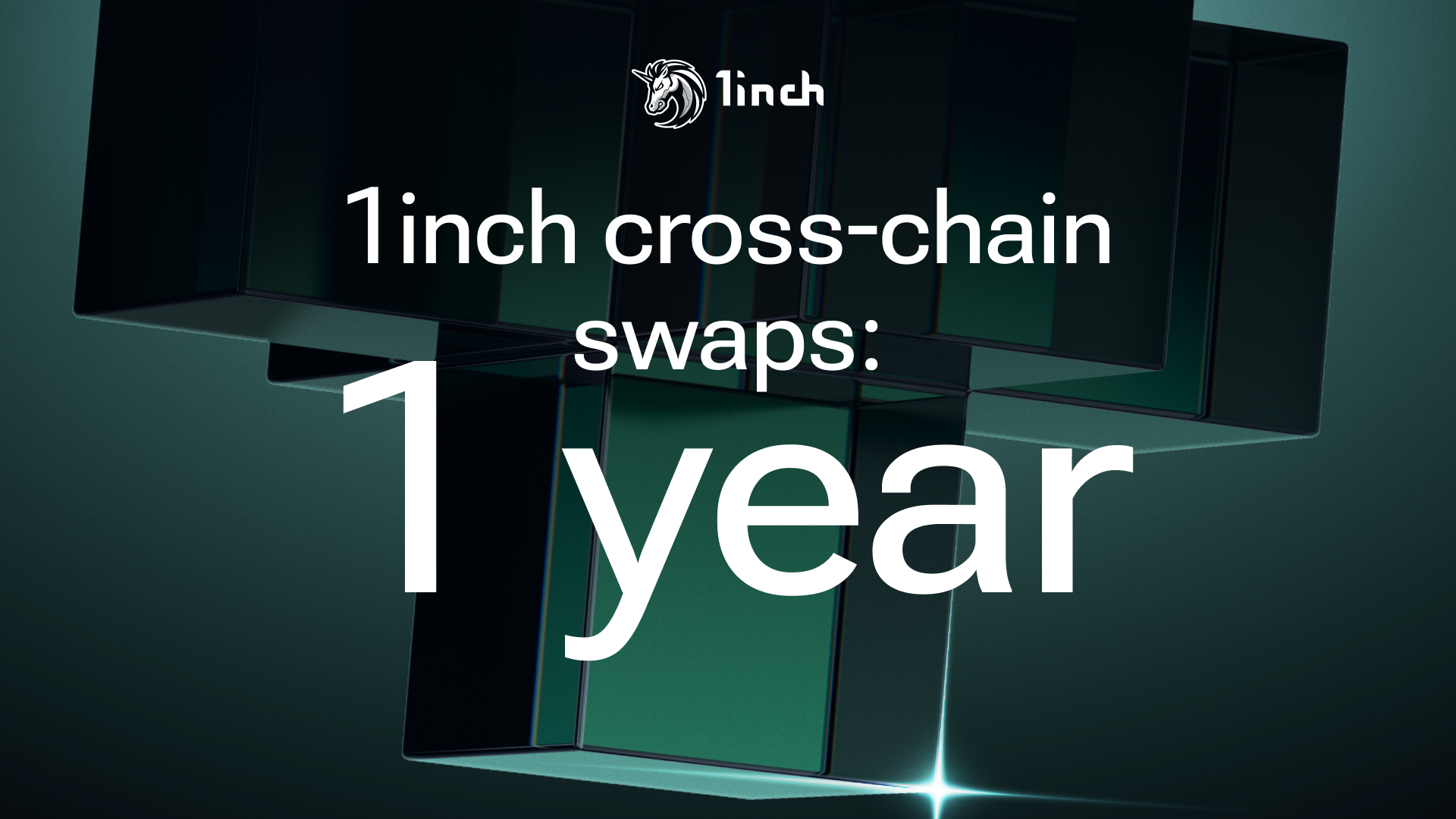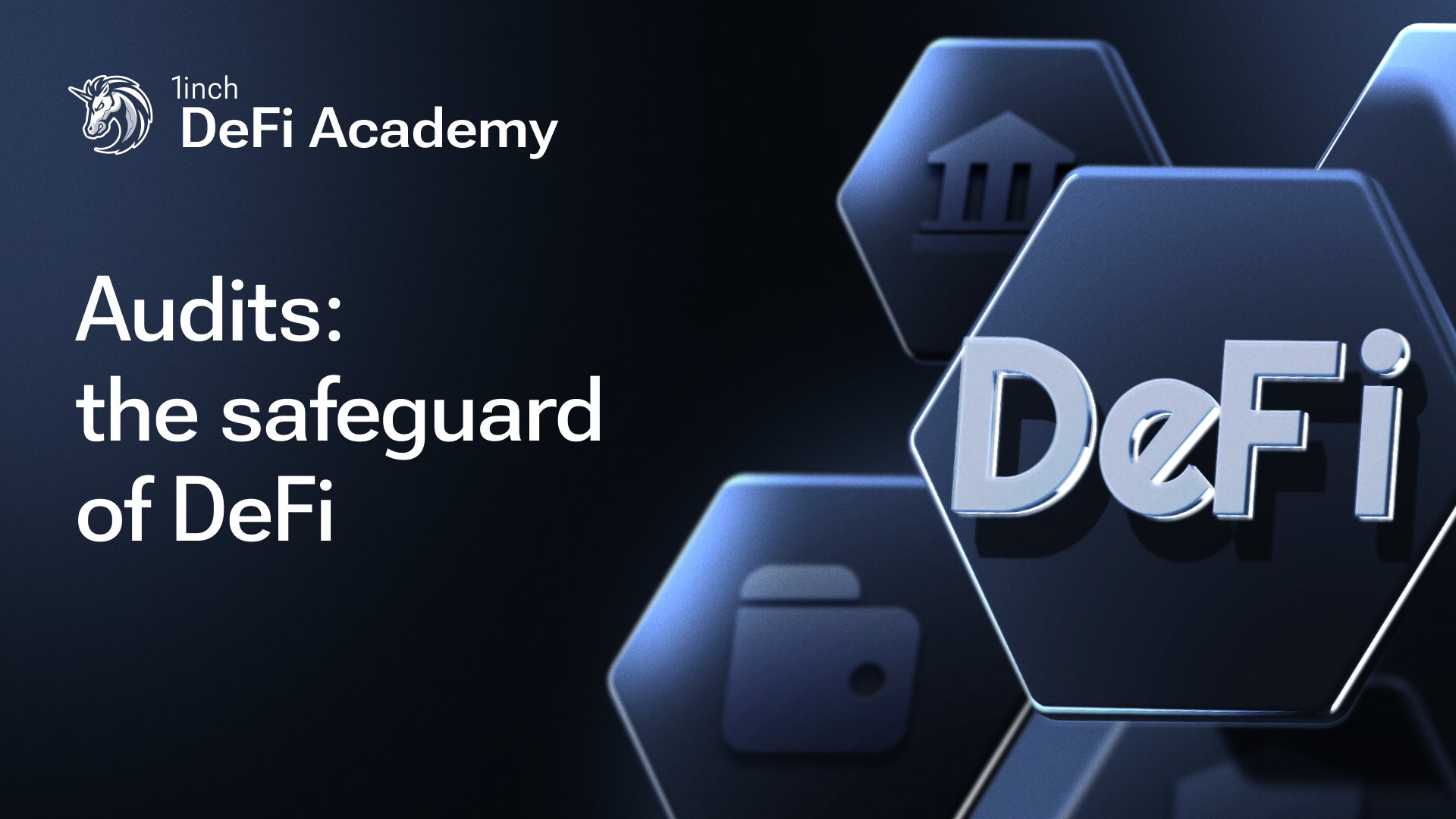The 1inch Davos meetup: Regulating DeFi

This is the third post in a series focused on the highlights of panels held as part of 1inch’s meetup “Institutions and DeFi” at the World Economic Forum Annual Meeting in Davos on January 16.
The panel discussion titled “Regulating DeFi: How to reach a balance between protecting users and fostering innovation” featured Joseph Cutler (Joseph P. Cutler Partner) and Orest Gavryliak (Legal Lead at the 1inch Network). Prominent investor, keynote speaker and best-selling author Mark Mueller-Eberstein, moderated the discussion.
The discussion kicked off by addressing the challenges regulators face with DeFi.
“I think one of the challenges of DeFi is that it functions in a way that doesn’t match the way that most laws are designed,” Joseph Cutler noted.
“The laws don’t govern the holder of the funds — they govern intermediaries, and true DeFi has eliminated the majority of the intermediaries,” he went on to say. “So, regulators are struggling because they only have at their disposal existing laws that are aimed at the wrong target.”
Still, executing the regulatory vision remains possible, rather than merely arguing with lawyers.
“Our main priority at 1inch is to protect the user, while fostering innovation and adhering to existing laws,” Orest Gavryliak said. “The future of DeFi is to close the gap between the regulation and the user, probably moving to a regulated DeFi space where you’re still in custody of your assets but you’re accessing the frontend with the KYC and identification processes.”

However, to reach the broader market, it is necessary to offer users robust protection. Orest Gavryliak emphasized that “user protection is embedded in the product environment by design.”
“1inch Fusion protects users from being sandwiched by having a smart settlement with professional market makers,” he explained. “It is built with many tools, such as BlockAid, Blowfish, Tenderly etc., to prevent users from signing the wrong transaction or being exploited.”
Meanwhile, the regulatory challenge includes balancing the need to protect users with ensuring their autonomy.
“A lot of users want freedom, control, autonomy, safety and protection at the same time,” Joseph Cutler observed. “Regulators should be interested in dialoguing and perhaps lobbying for regulations to adapt and promote innovation,” he added.
Joseph Cutler also offered a comparison of global regulatory approaches to decentralized finance.
“The EU has approached DeFi slightly differently [from US], and it’s very impressive what they’ve done in MiCA [Markets in Crypto Assets Regulation] — ‘We don’t understand enough about DeFi to regulate it properly. Let it mature, then we’ll know how to regulate it.’ Countries like South Korea and the EU itself are enabling regulations that encourage development and innovation within safe boundaries.”
But innovation and compliance are not mutually exclusive, and the right approach can foster both.
“By developing a new product, we always try to give it the best sense of regulation and compliance,” Orest Gavryliak said.
The development of DeFi laws calls for a collaborative effort from everyone within the space.
According to Orest Gavryliak, “the laws should come from us, the participants of DeFi, because sometimes governments lack the knowledge of the process.”
“We at 1inch, together with Uniswap Labs, are working on a policymaking strategy to scale that, to push it and make it and help the regulatory,” he added.
While a single global regulatory framework remains elusive, respect for different regulatory requirements is essential.
According to Joseph Cutler, regulatory approaches in different markets will always be different because of cultural and priority considerations.
“I don’t think that a global harmonious methodology is necessary, but I do think that regulators should be respectful of the fact that their citizens may transact in the place that feels like home to them,” he said.
“It doesn’t really need to stop trying to pass innovation to the institutional skies,” Orest Gavryliak concluded. “For example, we [at 1inch] are building two areas — decentralized and centralized.”
Explore the DeFi space with 1inch!




























